Thiosol 1G Injection
$25.00 – $200.00
Available Options:
Want to order in bulk / B2B price ? | Send Inquiry |


Introduction to Thiosol 1G Injection
Thiosol 1G Injection, containing Thiopental Sodium, is a powerful barbiturate anesthetic widely used in medical practice for its rapid and effective induction of anesthesia. Thiopental Sodium, the active ingredient, acts as a central nervous system depressant, quickly inducing a deep state of unconsciousness, making it an essential tool in the preparation for surgical procedures. Administered intravenously, Thiosol is particularly valued for its fast onset of action, which allows for swift preparation of patients for surgery, minimizing anxiety and discomfort.
Thiosol 1G Injection is typically manufactured by Neon Laboratories Limited, a pharmaceutical company based in India. They are known for producing a variety of pharmaceutical products including injectables, tablets, capsules, and more. Neon Laboratories has a reputation for adhering to stringent quality standards and regulations.
Beyond its primary role in anesthesia induction, Thiosol 1G Injection is also utilized in various other clinical settings. It plays a critical role in the management of status epilepticus, a severe and prolonged form of seizure, by providing rapid stabilization through sedation. In emergency medicine, Thiosol is employed during rapid sequence intubation to quickly render a patient unconscious, facilitating the insertion of a breathing tube and ensuring the patient’s airway is secured.
Thiosol’s applications extend to neurocritical care, where it is used to manage elevated intracranial pressure in patients with traumatic brain injuries or other conditions affecting the brain. By reducing cerebral metabolic demand and cerebral blood flow, it helps lower intracranial pressure, providing crucial neuroprotection. Additionally, in certain critical situations, Thiosol may be used to induce a therapeutic coma, offering further protection to the brain by minimizing metabolic activity.
Uses of Thiosol 1G Injection
Thiosol 1G Injection is primarily used as an antidote in the treatment of acute poisoning caused by heavy metals, particularly arsenic, mercury, and gold. Heavy metal poisoning can occur through various routes, including ingestion, inhalation, or skin contact, and it can lead to serious health complications. Thiosol 1G Injection is used to counteract the toxic effects of these heavy metals and enhance their elimination from the body. The injection contains the active ingredient “Sodium Thiosulfate,” which forms stable complexes with heavy metals, allowing them to be excreted more effectively through the kidneys and urine.
The main use of Thiosol 1G Injection is to provide emergency treatment for individuals who have been exposed to toxic levels of heavy metals, particularly in cases of:
- Arsenic Poisoning
- Mercury Poisoning
- Gold Poisoning
It’s important to note that Thiosol 1G Injection is typically administered by healthcare professionals in controlled medical settings, as heavy metal poisoning can have serious health implications. The injection is part of a comprehensive treatment plan that may also involve other interventions based on the specific circumstances and severity of the poisoning. If you suspect heavy metal poisoning, seek immediate medical attention and follow the guidance of healthcare providers.
How Does Thiosol 1G Injection Works?
Thiosol 1G Injection contains the active ingredient “Sodium Thiosulfate,” which works as an antidote in cases of heavy metal poisoning. It functions by forming stable complexes with heavy metals, such as arsenic, mercury, and gold, that have entered the body. These complexes are more water-soluble than the original heavy metal compounds, which allows for their excretion through the kidneys and urine. In essence, Thiosol 1G Injection enhances the elimination of toxic heavy metals from the body.
The mechanism of action of Thiosol 1G Injection can be summarized as follows:
- Complex Formation
- Increased Excretion
- Reduction of Toxic Effects
It’s important to note that Thiosol 1G Injection is typically administered under the supervision of healthcare professionals who are experienced in managing cases of heavy metal poisoning. The injection is part of a comprehensive treatment approach that may also include supportive care and other interventions based on the specific heavy metal involved and the severity of the poisoning. If you suspect heavy metal poisoning, seek immediate medical attention and follow the guidance of healthcare providers.
Side Effects of Thiosol 1G Injection
Thiosol 1G Injection is generally considered safe when administered under the supervision of healthcare professionals to treat heavy metal poisoning. However, like any medication, it may cause some side effects. Not everyone will experience these side effects, and they are usually mild and temporary. Common side effects of Thiosol 1G Injection may include:
- Local Reactions at Injection Site
- Nausea and Vomiting
- Headache
- Hypersensitivity Reactions
- Low Blood Pressure (Hypotension)
- Gastrointestinal Distress
It’s important to note that serious side effects are rare with Thiosol 1G Injection. Healthcare professionals are trained to monitor patients for any adverse reactions and take appropriate steps to manage them if they occur. If you experience any unusual or severe symptoms after receiving Thiosol 1G Injection, it’s important to inform your healthcare provider immediately.
Keep in mind that the potential benefits of using Thiosol 1G Injection to treat heavy metal poisoning generally outweigh the risk of side effects. Healthcare providers carefully consider the risks and benefits before administering the medication and are prepared to address any complications that may arise.
Common Side Effects
- Local Reactions at Injection Site
- Nausea and Vomiting
- Headache
- Gastrointestinal Distress
- Hypersensitivity Reactions
Serious Side Effects
- Severe Allergic Reactions
- Hypotension (Low Blood Pressure)
- Cardiovascular Effects
- Metabolic Imbalances
- Renal Effects
- Respiratory Distress
Rare Side Effects
- Serious Allergic Reactions
- Cardiovascular Effects
- Respiratory Distress
- Metabolic Imbalances
- Renal Effects
- Hypotension (Low Blood Pressure)
How to Manage Side Effects?
Thiosol 1G Injection, it’s important to promptly inform your healthcare provider. While side effects are generally rare and usually mild, healthcare professionals are trained to monitor for and manage any adverse reactions. Here are some steps you can take to manage side effects of Thiosol 1G Injection.
- Inform Healthcare Provider
- Receive Medical Attention
- Follow Healthcare Provider’s Recommendations
- Monitor Symptoms
- Stay Hydrated
- Rest and Recovery
- Avoid Triggers
- Emergency Plan
- Contact Emergency Services
Warning & Precautions
Thiosol 1G Injection is a medication used to treat heavy metal poisoning, and while it is generally safe and effective when administered by trained healthcare professionals, there are important warnings and precautions that should be considered:
- Administered by Healthcare Professionals
- Allergic Reactions
- Hypersensitivity
- Medical History
- Pregnancy and Breastfeeding
- Electrolyte Imbalances
- Drug Interactions
- Dosage and Monitoring
- Storage and Handling
- Emergency Plan
- Patient Education
It’s important to follow all instructions and guidance provided by healthcare professionals when receiving Thiosol 1G Injection. This medication is typically used in emergency situations, and healthcare providers are well-prepared to ensure your safety and well-being. If you have any concerns or questions, don’t hesitate to discuss them with your healthcare provider.
Safety Advice
Here are some safety advice and guidelines to consider when it comes to Thiosol 1G Injection:
- Administration by Healthcare Professionals
- Allergy Information
- Medical History
- Dosage and Timing
- Monitoring
- Emergency Contact
- Pregnancy and Breastfeeding
- Medication Interaction
- Storage and Handling
- Adverse Reactions
- Patient Education
- Follow-up
- Emergency Plan
Remember, Thiosol 1G Injection is typically used in emergency situations, and healthcare professionals are well-trained to ensure your safety and well-being. Following the guidance and recommendations of your healthcare provider is crucial for a safe and effective treatment experience.
Frequently Asked Questions
1. What is Thiosol 1G Injection used for?
Ans. Thiosol 1G Injection is used as an antidote in the treatment of acute poisoning caused by heavy metals, such as arsenic, mercury, and gold. It helps facilitate the elimination of these toxic metals from the body.
2. How is Thiosol 1G Injection administered?
Ans. Thiosol 1G Injection is typically administered intravenously by trained healthcare professionals. The dosage and administration are determined based on the individual’s condition and the type of heavy metal poisoning.
3. Are there any serious side effects of Thiosol 1G Injection?
Ans. Serious side effects are rare but possible. They may include severe allergic reactions (anaphylaxis), cardiovascular effects, respiratory distress, and metabolic imbalances. Seek immediate medical attention if you experience any severe or unusual symptoms.
4. Is Thiosol 1G Injection safe during pregnancy and breastfeeding?
Ans. The safety of Thiosol 1G Injection during pregnancy and breastfeeding is not well-established. Consult your healthcare provider to weigh the potential benefits against the risks.
| Pack Size | 1 Pack, 10 Packs, 5 Packs |
|---|---|
| Price/Unit | $20/unit, $22/unit, $25/unit |
Be the first to review “Thiosol 1G Injection” Cancel reply
Related products
Diabetes
Health
Diabetes
Diabetes
Diabetes
Diabetes
Health
Diabetes
Related Products
Health
Health
Health
Health

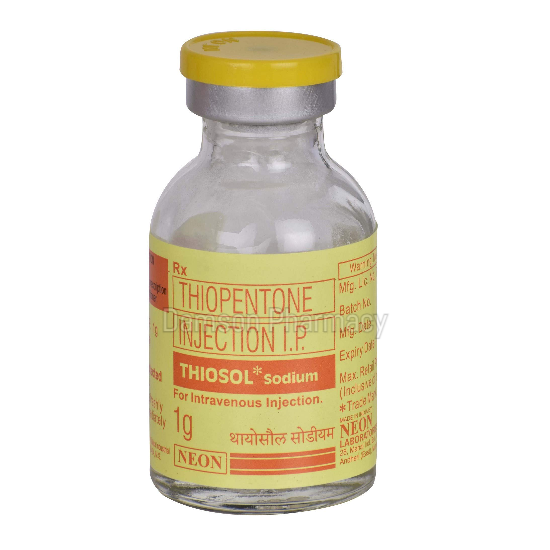

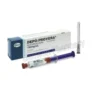
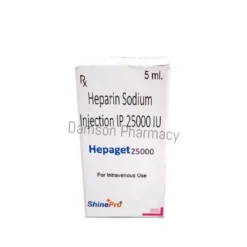
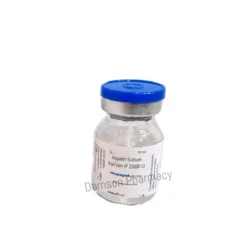
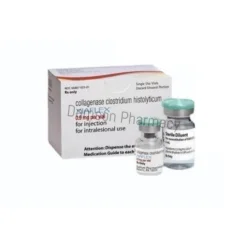
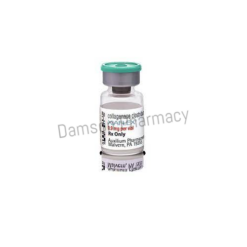
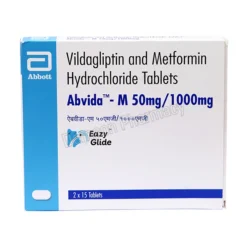
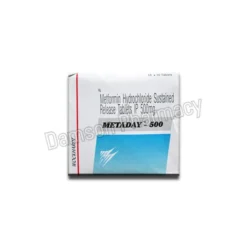
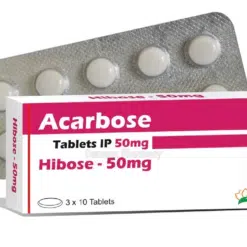
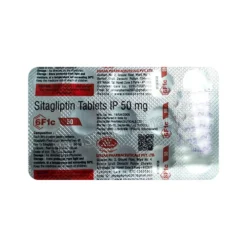

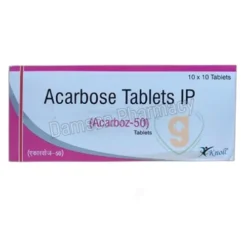
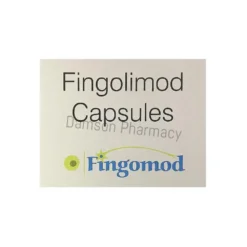
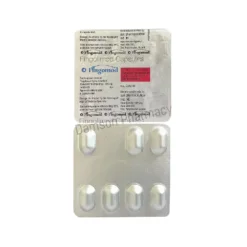
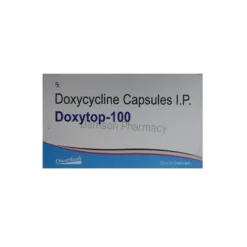
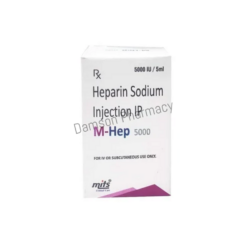
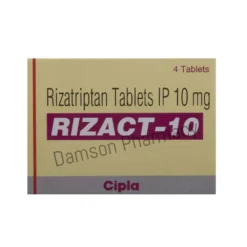
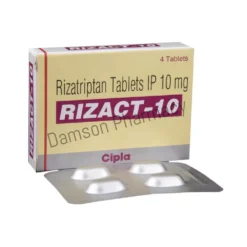
Reviews
There are no reviews yet.